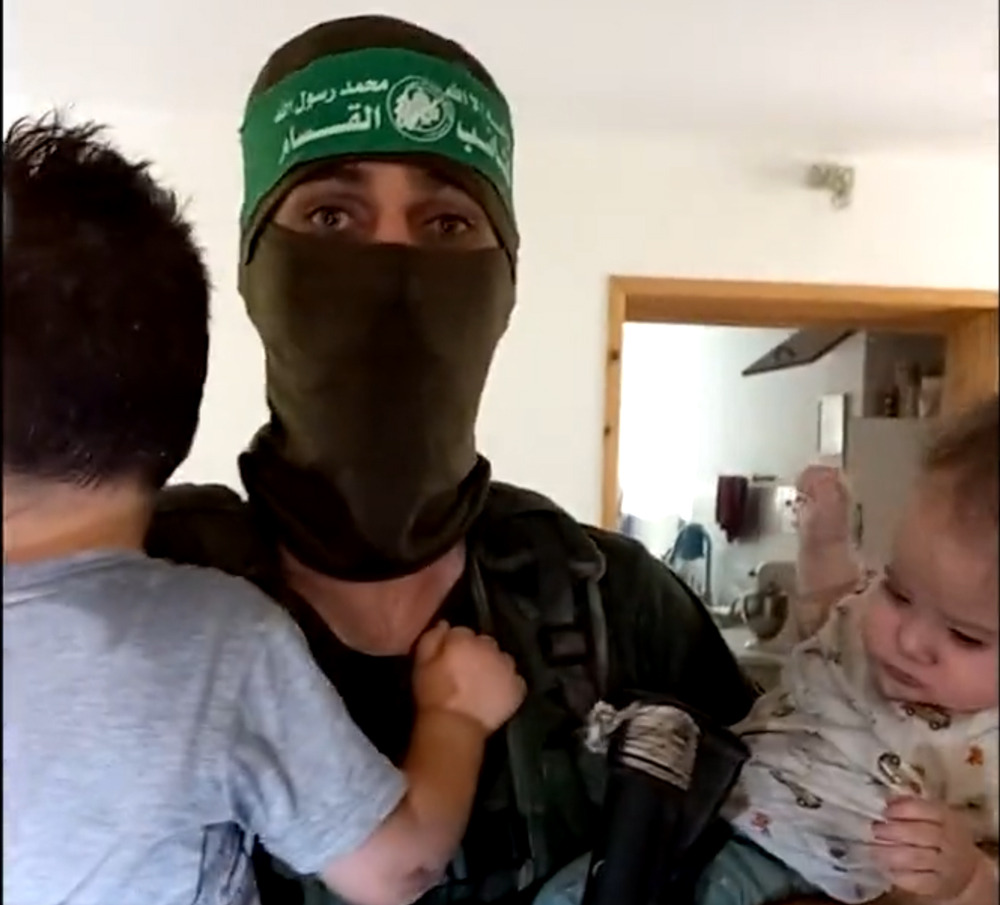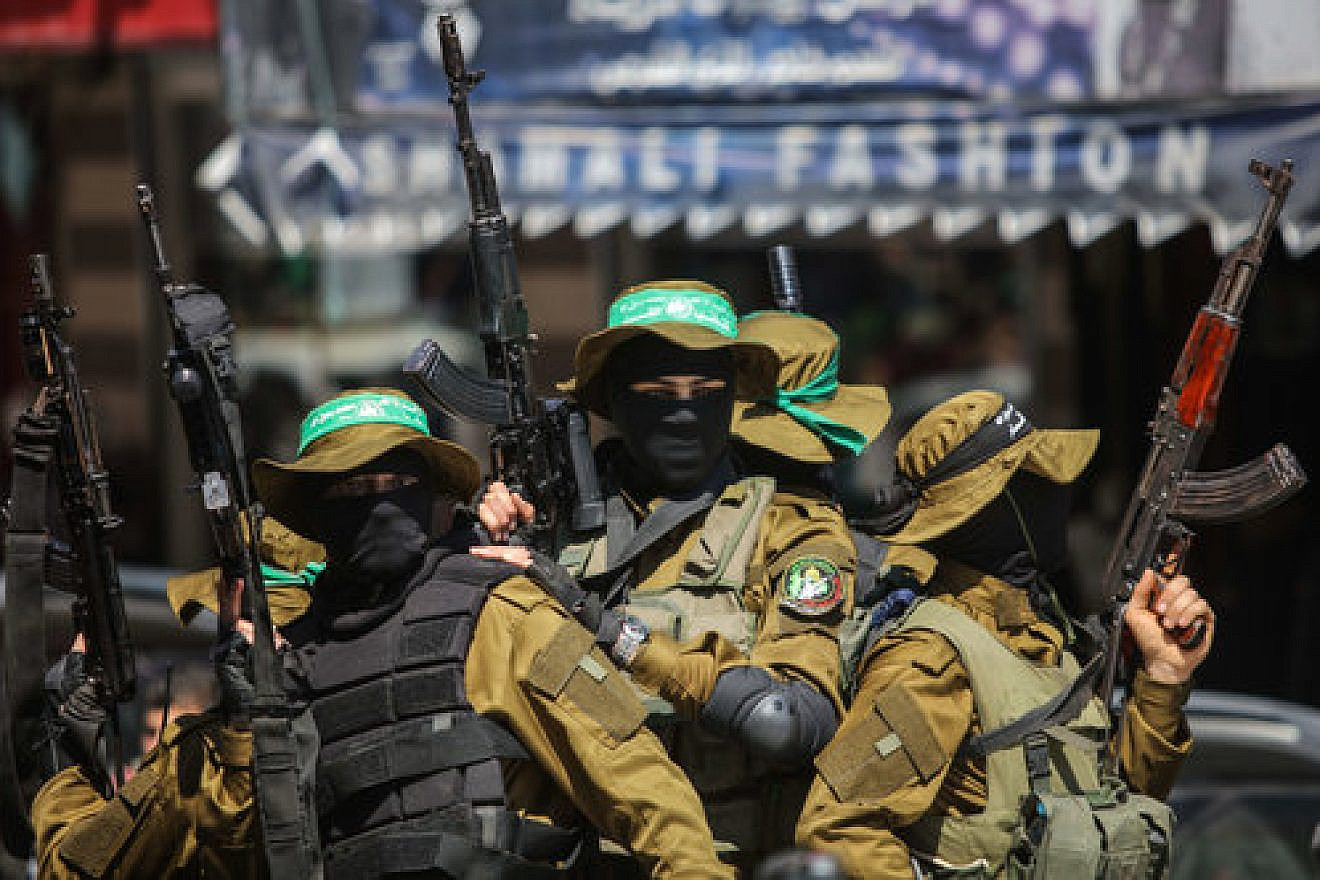by Alan M. Dershowitz
Especially complicit, with blood on their hands, are supporters of Hamas on university campuses who chant for intifada and revolution. Also complicit are international organizations, such as the International Criminal Court, that treat Israel and Hamas as equals.
Translations of this item:
The decision by the Israeli government to make significant concessions to the Hamas kidnappers should never be called a "deal." It was an extortion.... The kidnapping was a crime. And the extortionate demand was an additional crime.
When a terrorist group "negotiates" with a democracy, it always has the upper hand. The terrorists are not constrained by morality, law or truth. They can murder at will, rape at will, torture at will and threaten to do worse. The democracy, on the other hand, must comply with the rules of law and must listen to the pleas of the hostage families.
Especially complicit, with blood on their hands, are supporters of Hamas on university campuses who chant for intifada and revolution. Also complicit are international organizations, such as the International Criminal Court, that treat Israel and Hamas as equals.
[L]et us put the blame for ALL the deaths in Gaza where it belongs: on Hamas and the useful idiots and useless bigots who support murderous terrorists.

The decision by the Israeli government to make significant concessions to the Hamas kidnappers should never be called a "deal." It was an extortion. Would you call it a deal if somebody kidnapped your child and you "agreed" to pay ransom to get her back? Of course not. The kidnapping was a crime. And the extortionate demand was an additional crime.
So the proper description of what occurred is that Israel, pressured
by the United States, capitulated to the unlawful and extortionate
demands of Hamas as the only way of saving the lives of kidnapped
babies, mothers and other innocent, mostly civilian, hostages.
This was not the result of a negotiation between equals. If an armed robber puts a gun to your head and says, "your money or your life," your decision to give him your money would not be described as a deal. Nor should the extorted arrangement agreed to by Israel be considered a deal. So let's stop using that term.
When a terrorist group "negotiates" with a democracy, it always has the upper hand. The terrorists are not constrained by morality, law or truth. They can murder at will, rape at will, torture at will and threaten to do worse. The democracy, on the other hand, must comply with the rules of law and must listen to the pleas of the hostage families. The result of this exertion was bad for Israel's security, but good for the hostages who remain alive and their families. The heart rules the brain, as it often does in moral democracies that value the immediate saving of the lives of known people over the future deaths of hypothetical people whose identities we do not know. This tradeoff is understandable as compassionate, even if not compelling as policy.
If every democratic nation adopted a policy of never negotiating with terrorists, it might discourage terrorism. But every nation submits to the demands of kidnappers and extortionists, so terrorism and hostage-taking have become a primary tactic of the worst people in the world. And the rest of us are complicit.
Especially complicit, with blood on their hands, are supporters of Hamas on university campuses who chant for intifada and revolution. Also complicit are international organizations, such as the International Criminal Court, that treat Israel and Hamas as equals. These supporters of terrorism encouraged Hamas to hold out for many months in the belief that their support would pressure Israel into making more concessions.
The students of terror – the university students who are encouraging Hamas into continuing their murderous ways – must be held accountable for their complicity in evil. Though they may have the same First Amendment rights as Jews do, they should be treated with the same contempt that Nazis, the KKK and racist supporters of violence are treated. The First Amendment does not give them the right to be hired by decent employers.
The First Amendment gives employers the power to refuse to associate with supporters of Nazism, Hamas terrorism or other evil groups. American law criminalizes giving material support to designated terrorist groups, which include Hamas and Hezbollah. Morality, as distinguished from law, should deem immoral providing any support -- material, political, economic or demonstrative – to any terrorist group such as Hamas. Yet both the presidential and vice-presidential candidates of the Democrat Party urged people to listen to the messages of these protestors. They would never say that about demonstrators who favored lynching blacks or raping women. But Hamas does lynch Jews and rape Jewish women. There is no moral difference.
Let us welcome the news that perhaps 33 of the 98 hostages may be released, some of them alive, with the realization that what Hamas extorted from Israel in return for these releases may well endanger Israel's security in the future and cost still more innocent lives.
And let us put the blame for ALL the deaths in Gaza where it belongs: on Hamas and the useful idiots and useless bigots who support murderous terrorists.
- Follow Alan M. Dershowitz on X (formerly Twitter) and Facebook
Alan M. Dershowitz is the Felix Frankfurter Professor of Law, Emeritus at Harvard Law School, and the author most recently of War Against the Jews: How to End Hamas Barbarism, and Get Trump: The Threat to Civil Liberties, Due Process, and Our Constitutional Rule of Law. He is the Jack Roth Charitable Foundation Fellow at Gatestone Institute, and is also the host of "The Dershow" podcast.
Source: https://www.gatestoneinstitute.org/21320/hamas-deal-crime














